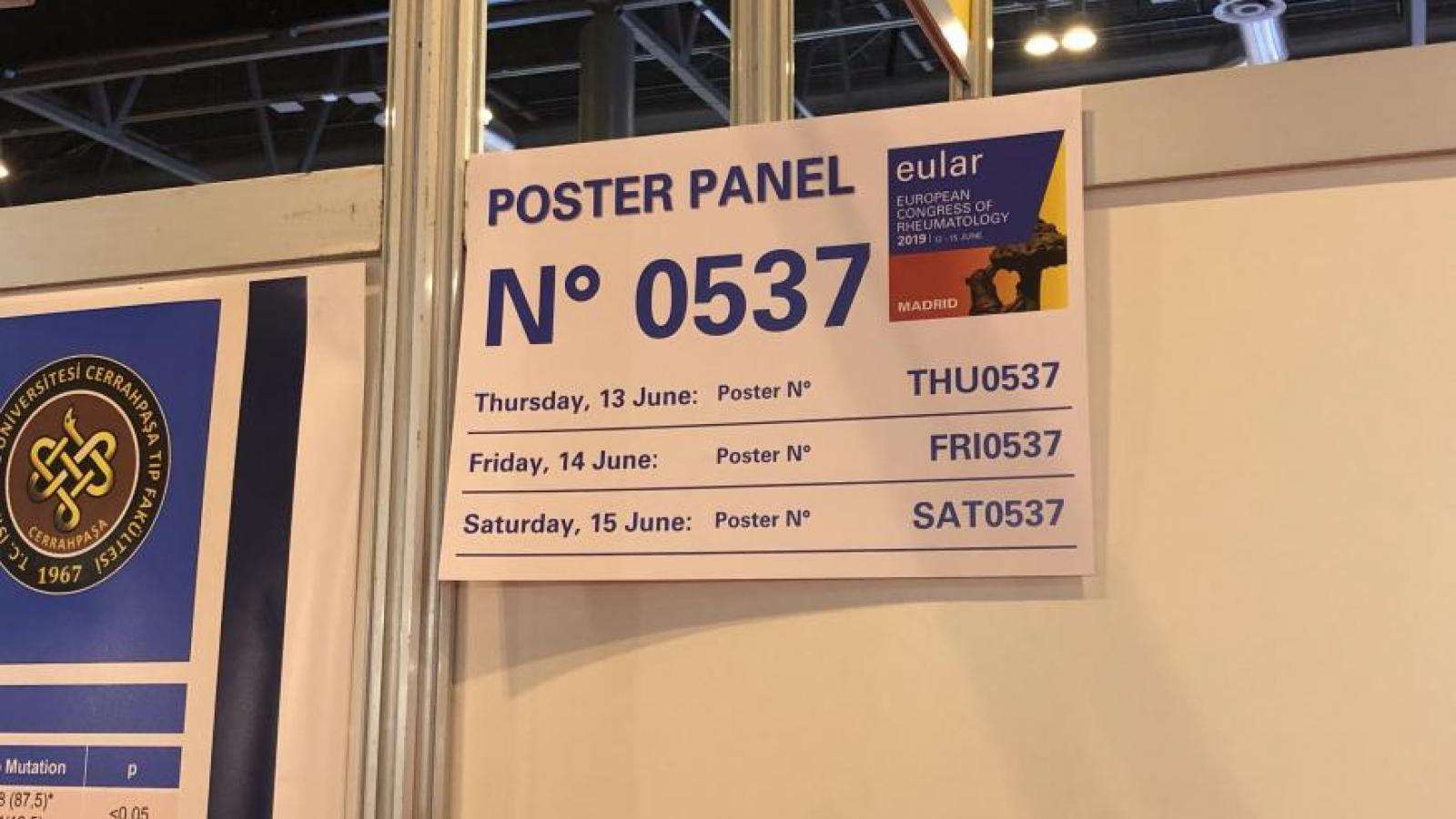Rheumatoid Arthritis
At a EULAR 2025 session titled “What makes ‘Difficult-to-treat RA’ so difficult to treat? And what can we do?”, Drs. Paula David and Dennis McGonagle introduced the emerging concept of polyrefractory rheumatoid arthritis (RA), a term now being used to describe a subset of patients who have failed to respond to five or more biologic or targeted synthetic DMARDs. This new classification, derived from recent multinational registry data,
It's easy to think that in our current world that we've done it all for rheumatoid arthritis, that there's nothing left to be done after b/tsDMARDs have become relatively widespread and accessible. If we aren’t satisfied that we’ve done all we can for our RA patients, how can we make their treatment and their lives better?
Dr. Jack Cush reviews highlights, trends and novel studies from EULAR 2025 in Barcelona from last week.
Over the last 50 years, discoveries of connections between inflammation and the nervous system have been better understood.
JAK inhibitors have taken a beating over the last three years. The excitement and potential has been tempered by mounting cardiovascular safety concerns, but specifically in at-risk patients, compared to TNF inhibitors. So it is an intriguing idea to pair JAK inhibitors with something that might have a cardioprotective effect. It is therefore worth excitement that we have a therapeutic option to follow which does just that. At EULAR 2025, we
Advances in the treatment of rheumatoid arthritis, particularly the treat-to-target strategy and the introduction of effective DMARDs, have improved the management of inflammation in RA. However, improved inflammatory markers do not always translate into a resolution of patients’ symptoms or improvements in functional capacity. A recent pooled analysis from the CareRA and CareRA2020 randomized controlled trials shed new light on this
New studies shared at the 2025 annual EULAR congress in Barcelona highlight the benefits that nurse-led care can bring for both patients and healthcare systems.
Guidelines differ on the early treatment of RA – ACR suggests not to use glucocorticoids (GC) and EULAR updated recommendations for RA treatment presented at #EULAR2025 continued to suggest early treatment with MTX and glucocorticoids. We do know that it is not easy to get a significant minority of RA patients off of prednisone.
I asked the EULAR twitter sphere how they feel about combination of methotrexate (MTX) and leflunomide (LEF). The opinions are differing so far, with 50% reporting prescribing this combination often while 50% are worried of side effects. Several abstracts presented this year are providing further data to help us make up our minds in RA and PsA.
As earlier diagnosis and treatment of rheumatoid arthritis (RA) have resulted in greatly improved clinical outcomes, the focus of current research has now shifted to preventing the development of RA altogether. At EULAR 2025, several oral presentations explored this objective, highlighting data from three key prevention trials: APIPRA, ARIAA, and TREAT EARLIER. Each trial targeted individuals considered to be “at-risk” for developing RA,
Highlights from today included presentations on imaging in vasculitis, a debate on whether to treat high risk pre-clinical RA, and EULAR Recommendations on a) Treatment of interstitial lung disease (ILD); b) Physical Activity in people with arthritis; and c) EULAR disease activity score for antiphospholipid syndrome and d) the management of SLE nephritis. Below are a few others that caught my eye today.
At a EULAR 2025 session titled “What makes ‘Difficult-to-treat RA’ so difficult to treat? And what can we do?”, Drs. Paula David and Dennis McGonagle introduced the emerging concept of polyrefractory rheumatoid arthritis (RA), a term now being used to describe a subset of patients who have failed to respond to five or more biologic or targeted synthetic DMARDs. This new classification, derived from recent multinational registry data,
New work presented at the 2025 annual EULAR congress in Barcelona focuses on the recombinant zoster vaccine (RZV), which contains recombinant glycoprotein E – the major target of CD4+T-cells. The abstract describes the tolerability and safety of RZV in patients with inflammatory rheumatic and musculoskeletal diseases (iRMD), showcasing interim data from an ongoing study.
Is there a higher risk of cancer that comes with the disease? Or with the treatments? So many confounding parameters, such as disease duration, disease state, and disease activity come into play. A promising session explored comorbidities in Rheumatoid Arthritis, in particular cancer and cardiovascular events. Here are my takeaways.
Day 2 was a full agenda for those attending EULAR 2025 in Barcelona with sessions on the management of RA, Behcets, Lupus and Hand Osteoarthritis. Clinical overviews on MAS, Ehlers-Danlos, Difficult to treat RA and PsA offered a wide variety of options to rheumatologists. Here are a few interesting presentations from today.






















 Poster Hall
Poster Hall